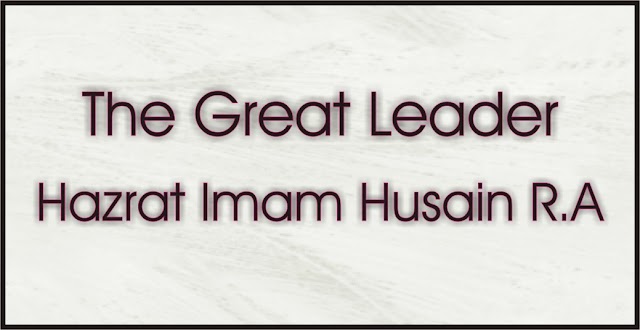"Muhammad
(pBUH) was a man of truth and loyalty", says Thomas Carlyle, "valid
in what he said, in what he talked, in his opinion; he generally implied
something; a man fairly aloof in discourse, quiet when there was not something
to be said yet relevant, astute, earnest when he talked, continually
illuminating the matter".
"His scholarly characteristics, "says Washington Irving, "were without a doubt of an exceptional kind. He had a speedy fear, a retentive memory, a clear creative mind and an imaginative virtuoso. His tactical victories stirred no pride nor vainglory as they would have done had they been affected for narrow minded purposes. 10 the hour of his most prominent force he kept up similar straightforwardness of habits and appearance as in the times of his misfortune.
Thus, a long way from influencing a glorious state, he was disappointed if on
going into a room any surprising tribute of regard was displayed to him. In the
event that he focused on general mastery it was the domain of the confidence:
concerning the worldly principle which experienced childhood in his grasp, he
utilized it without gaudiness, so he found a way no real way to propagate it in
his family.'
In his
Histoire de la Turqui, Lamertine notices: "Thinker, speaker, witness,
lawmaker, champion, hero of thoughts, restorer of public authoritative
opinions, of a clique without pictures; the organizer of 20 earthly Empires,
that is Muhammad (PBUH). As respects all principles by which human significance
might be estimated, we may well ask, is there any man more noteworthy than
he?"
"It is
inconceivable," says Mrs. Annie Besant, "for any individual who
considers the life and character of the incomparable Prophet of Arabia who
knows how he educated and how he lived to feel anything besides adoration for
that powerful Prophet, one of the extraordinary couriers of the Supreme. Also,
albeit in what I put to you I will express numerous things which might be
natural to you, yet I re-read them as another method of profound respect,
another feeling of veneration for the powerful Arabian pioneer."
The
acclaimed English author and artistic pundit Dr. Johnson says: "His
absolutely chronicled character, his straightforward mankind, professing to
take care of business among men, his extreme authenticity, staying away from
all otherworldly distance; the completely equitable and all inclusive structure
under which actually the for him divine government drove him to imagine the
relations of men, the power of his moral allure all partner Muhammad (PBUH)with
the modem world".
The observed English author Robert Briffault pays rich accolades for the lessons of the Holy Prophet of Islam, when he says: "The thoughts of opportunity for every single individual, of human fraternity, of the fairness of all men under the steady gaze of the law of majority rule government, by interview and general testimonial, the thoughts that propelled the French Revolution and the Declaration of Rights, that directed the outlining of the American Constitution and kindled the battle for indepen dence in the Latin-American nations were not innovations of the West.
They track down their definitive motivation and source
in the Holy Quran, They are the pith of what the intellectuals of middle age
Europe obtained from Islam over a time of hundreds of years through the
different social orders that created in Europe in the wake of the Crusades in
impersonation of the fraternity relationship of Islam. It is profoundly
plausible that however for the Arabs current European progress couldn't have
ever emerged at an, it is sure beyond a shadow of a doubt that yet for them it
couldn't have ever expected that character which has empowered it to rise above
all past periods of development."







0 Comments